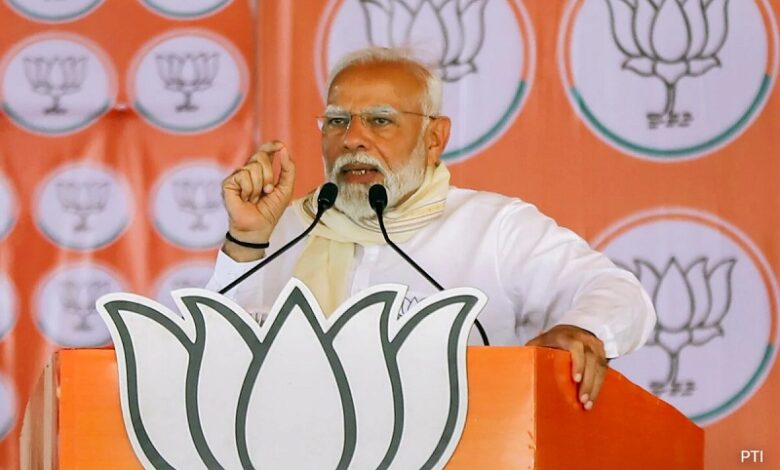Upholding the Integrity of Reservation: Narendra Modi’s Vision for Social Justice

News Mania / Agnibeena Ghosh/ 24th April 2024
Prime Minister Narendra Modi, in a fervent address at an election rally in Tonk, expressed grave concerns regarding the alleged intentions of the Congress party to manipulate the reservation system. He articulated that the Congress sought to expand reservation based on religious affiliations, thereby potentially jeopardizing the rights bestowed upon Dalits, backward classes, and tribal communities. Modi pointedly criticized the Congress’s actions dating back to 2004, highlighting their purported attempts to diminish the reservation quota for Scheduled Castes (SC) and Scheduled Tribes (ST) in Andhra Pradesh while simultaneously advocating for reservations for Muslims.
The Prime Minister vehemently assured the audience, with heartfelt conviction, that under his leadership, the reservation provisions for Dalits, backward classes, and tribals would remain intact and undivided by religious considerations. This stance, he emphasized, was fundamental to ensuring social justice and equitable opportunities for all marginalized sections of society.
In corroborating his stance, Modi referenced the insights gleaned from former Union Law Minister HR Bhardwaj’s book, ‘Nehru: Gazing at Tomorrow’. Bhardwaj’s work sheds light on a pivotal moment in Indian political history when Prime Minister Jawaharlal Nehru unequivocally opposed the idea of reservation based on caste and communal lines. Nehru’s reservations were articulated in a letter to chief ministers dated June 27, 1961, wherein he expressed apprehensions about the detrimental effects of such divisive practices on the nation’s meritocracy and efficiency.
Nehru’s words resonated with Modi’s concerns, as both leaders underscored the importance of upholding meritocracy while simultaneously addressing the socio-economic disparities faced by marginalized communities. Modi’s commitment to preserving the integrity of reservation policies echoes Nehru’s sentiment of aiding backward groups without compromising the efficiency and quality of governance.
The discourse surrounding reservation policies in India has been a contentious issue, deeply entrenched in socio-political narratives. While the affirmative action measures were initially conceived as temporary provisions to uplift historically disadvantaged communities, their implementation and extension have been subject to intense scrutiny and debate.
The essence of reservation lies in its intent to rectify historical injustices and provide equitable opportunities for those historically marginalized due to caste, tribe, or socio-economic status. However, the question of extending reservation benefits to religious communities raises complex ethical and constitutional dilemmas.
The framers of the Indian Constitution envisioned reservation as a tool for social transformation and inclusion, aimed at fostering a more egalitarian society. The reservation policy was primarily directed towards addressing the historical injustices inflicted upon Dalits, tribal communities, and backward classes, who were subjected to centuries of discrimination and oppression based on their caste or tribe.
However, the prospect of extending reservation benefits to religious communities, as purportedly advocated by certain political factions, raises concerns about the dilution of the original intent behind affirmative action. While it is essential to address socio-economic disparities faced by all marginalized communities, including religious minorities, conflating religious identity with caste or tribe may undermine the efficacy and fairness of reservation policies.
Modi’s assertion against the politicization of reservation along religious lines reflects a commitment to upholding the foundational principles of social justice and inclusivity enshrined in the Indian Constitution. By reaffirming his dedication to preserving the reservation benefits for Dalits, backward classes, and tribals, irrespective of religious affiliations, Modi seeks to uphold the integrity of India’s affirmative action framework.






